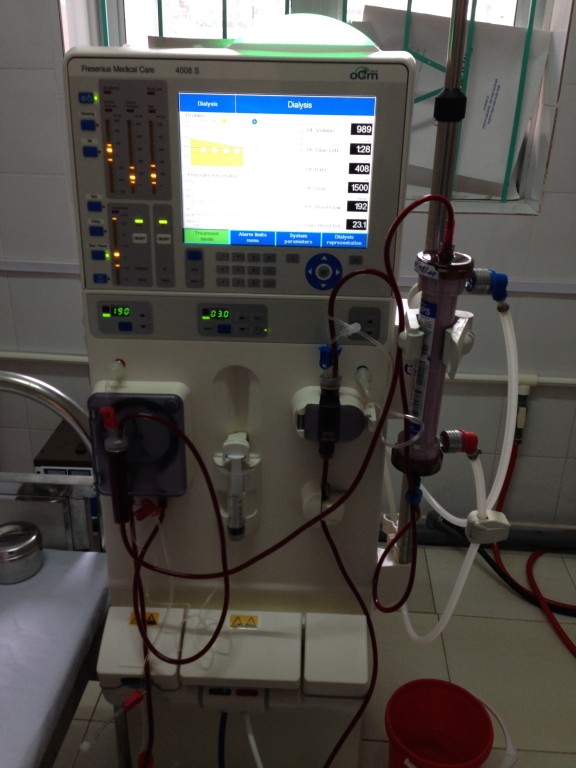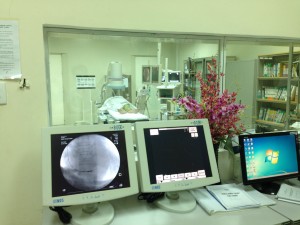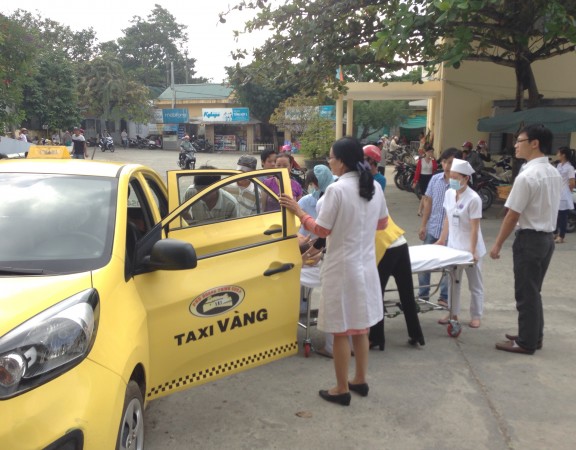The November 2014 Primary Care Mission trip confirmed to me that as a Medical Ministry, we must continue to be an agent of positive change in this country, no matter how small or insignificant it may seem at times. As people, we all want the latest and greatest of everything, especially when it comes to technology. But chasing after healthcare technology in a country with limited resources, newest and greatest may not be appropriate. These following examples are just 2 of the many examples popping up every where in Vietnam. I cited these just because I witnessed it on this trip from North to South.
Investment in a state of the art high cost, high maintenance hemodialysis unit to serve a very small subset of patients may not be appropriate while tens of thousands of other patients’ blood pressures are out of control; physicians and diabetic patients do not know what a HgbA1c is or how to measure urine microalbumin, or that none of the diabetics are on an ACE inhibitor. Ignoring these basic, scientific proven, cost effective treatments and in just a few more years, no amount of hemodialysis will be sufficient to treat these diabetics that will for sure need them.
Investments in a state of the art Digital Subtraction Angiography suite may not be appropriate when the possibility of finding disease on angiograms at some of these institutions is only 30% while a basic treadmill stress test unit is broken standing in a corner collecting dust. A treadmill stress test is part of set of guidelines to help cardiologists determine when an angiogram is indicated. The cost of that test is $200-$300 here in the US whereas an angiogram costs $5,000-$10,000. The appropriate use of a stress test and other non-invasive measures could significantly reduce costs and the high negative rate of angiography. Even more economical is the knowledge that pennies-a-day use of statin, a cholesterol lowering drug which is mandatory in most diabetics, could help delay/prevent the need of a stress test or angiogram, extending many more years to a patient’s life. Yet physicians are not adequately trained to treat as such.
As Vietnam is growing, getting more sophisticated in the healthcare arenas, she has a perfect opportunity to do the right thing. Yet she is proudly following a broken US system where procedures are rewarded and the act of taking time with patients, empowering them to care for themselves is penalized. Who is willing to say to them: “We Americans don’t always have the right answers. Don’t make the same irreversible mistakes that we did.”
This op-ed is not to criticize the people we love, but to let others know of our resolve as a Ministry to utilize all our resources in a good, sensible, and prioritized way. For us the crisis in which a patient’s life is in immediate danger is much less than before. It is time for us to focus on various aspects of disease preventions and public health to affect change. We cannot change the entire country, but we believe in one little province, our love and care for the people over the years has allowed our voices to be heard and respected. We can and will make a difference in that province. Come along by our side and be that positive force for change.



